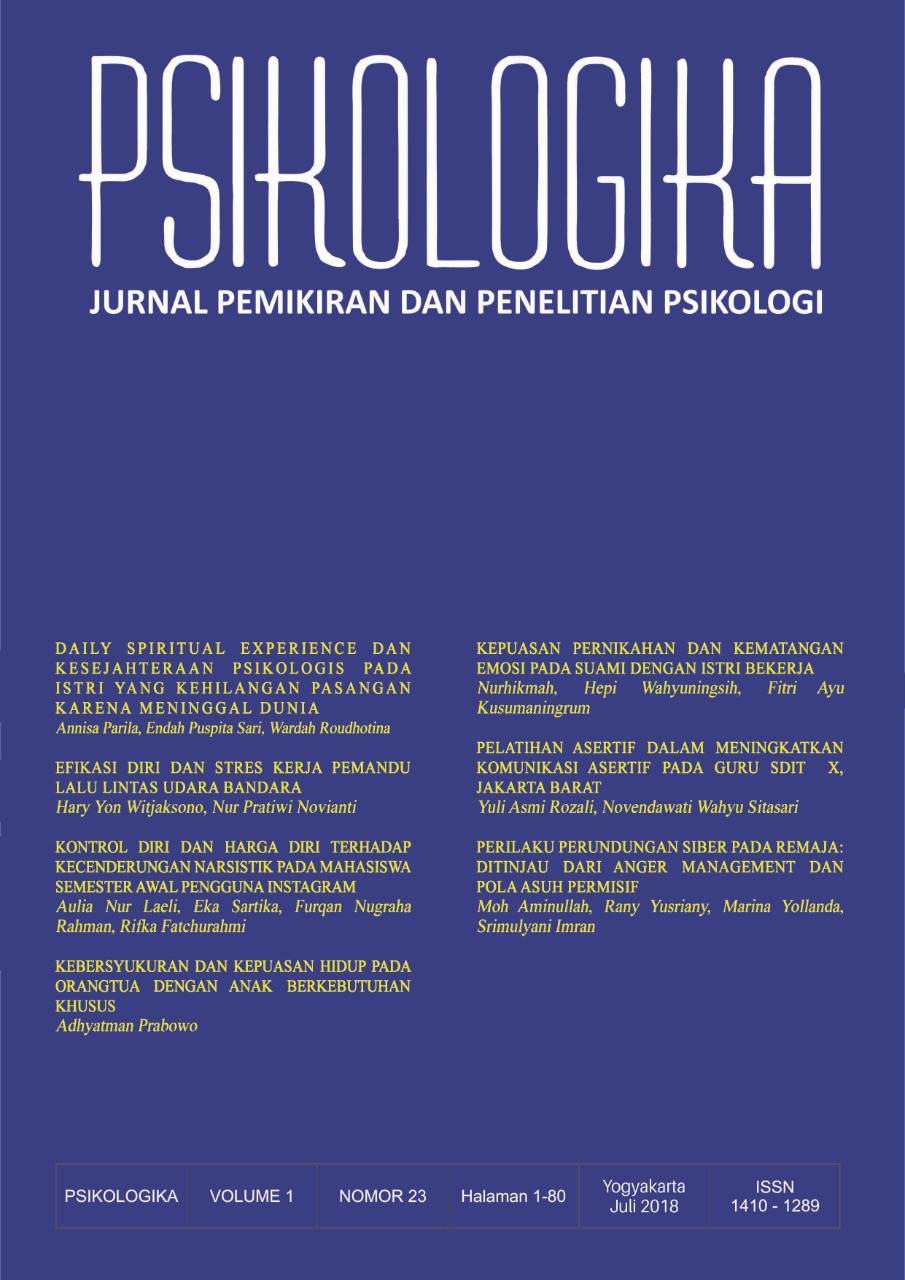Main Article Content
Abstract
Happiness is the most essential thing for human life. There are various indicators of happiness, but there are no indicators that use the Islamic perspective. This study aims to examine indicators of happiness (al-sa'adah) in an Islamic perspective that refers to and guided primarily by the Koran and Hadith. This study uses literature studies, by collecting verses from the Koran and Hadith related to the concepts of happiness in Arabic. The researcher found that overall, there are 164 verses from 122 letters of the Koran and 24 theorem of hadiths. Based on the search for arguments and verses related to happiness (al-sa'adah), researchers found 17 indicators of happiness according to the The Qoran and Hadith, namely: Faith and takwa (50 verses), tafaqquh fid-dien (2 verses), pious charity (23 verses), patience (7 verses), thanksgiving (7 verses), tazkiyatun al-nafs (2 verses), amar ma'ruf nahi munkar (3 verses), jihad fi sabilillah (5 verses), seeking and receiving the blessing of Allah (10 verses), dzikr (3 verses), get the gift / mercy from Allah (28 verses), ishlah (7 verses), uswah hasanah (2 verses), seek Allah's protection (2 verses), surrender (3 verses), reject evil with goodness (3 verses) and keeping oral and deeds (5 verses).
Article Details
License
Authors who publish with this journal agree to the following terms:
- Authors retain copyright and grant the journal right of first publication with the work simultaneously licensed under a Creative Commons Attribution-ShareAlike 4.0 International License that allows others to share the work with an acknowledgment of the work's authorship and initial publication in this journal.
- Authors are able to enter into separate, additional contractual arrangements for the non-exclusive distribution of the journal's published version of the work (e.g., post it to an institutional repository or publish it in a book), with an acknowledgment of its initial publication in this journal.
- Authors are permitted and encouraged to post their work online (e.g., in institutional repositories or on their website) prior to and during the submission process, as it can lead to productive exchanges, as well as earlier and greater citation of published work (See The Effect of Open Access).




